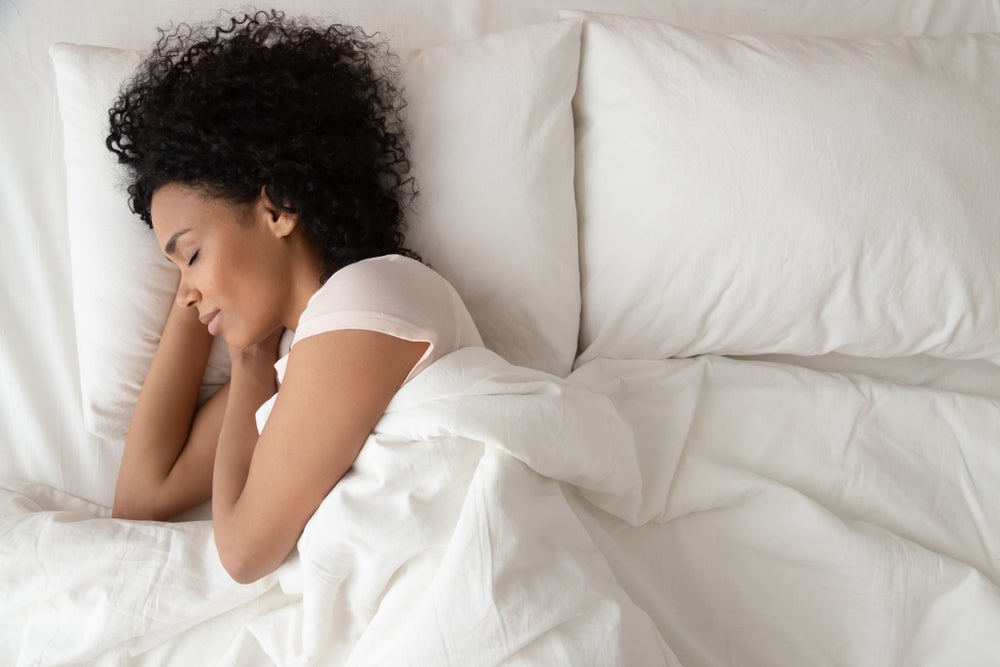4 Tricks for Getting Some Sleep During Menopause
As a little girl, you may have dreamed of being awakened with a kiss by a handsome prince. Now that you’ve passed 40, however, it’s a different story. Sleep is a precious commodity, so Prince Charming pales in comparison.
These days, it feels like life, age, and menopause have all ganged up on you, robbing you of blessed sleep. You’re left feeling tired and cranky, struggling to function and carry out your day-to-day tasks. You’d gladly give up the castle and prince to get some beauty sleep. All those sleeping princesses didn’t know how good they had it.
Before you completely give up on your prince and fairy tale, here’s some help. With some of these tips, you may be able to get the sleep you need so you can once again dream of a handsome prince and happily ever after.
Turn It Off
All those electronics that keep you going throughout your day may also be keeping you going at night. Using them before bed keeps your brain active at a time when your brain should be winding down. Depending on what you are doing, you may even be triggering a fight or flight response which increases physical stress that can keep you from sleeping. In addition, the lights from electronics can delay the release of melatonin, the sleep-inducing hormone.
The Fix: Make it a point to turn off all electronics at least 15-30 minutes before bedtime – that includes the TV. Better yet, keep all electronics out of your bedroom.
Be Consistent
You may live for weekends since you don’t have to go to work and you can get some extra sleep. But the change in schedule can be confusing for your sleep cycle. When your schedule and bedtime changes, it makes it harder for your brain to know when it’s time to go to sleep and wake up. The inconsistency can keep you awake even at times when you would like to be sleeping.
The Fix: Being consistent can help your brain know when it’s time to sleep and be awake. Create a regular bedtime and a sleep routine and then stick to them every day – even on the weekends and holidays.
Stay Out of the Kitchen
You need food and liquids to keep you going during the day, but some of them can keep you from sleeping. The alcohol, caffeine, and sugar that gives you a boost during the day can stay in your system for several hours and keep you awake at night. A large meal, high-fat foods, or gas inducing foods consumed close to bedtime can also keep you awake by triggering acid reflux, bloating, or uncomfortable fullness. Large amounts of liquids – including soups and beverages – can also disrupt sleep by causing middle of the night trips to the bathroom.
The Fix: Make good food choices in the afternoon and evenings. Know which ones may help you sleep and which ones can keep you awake. You should also choose beverages wisely and limit liquids in the afternoon and evenings.
Know Your Meds
Some medications and supplements, both prescription and over-the-counter, can cause sleep disturbances. These can include medications for allergies, blood pressure, asthma, depression, thyroid, and more. Even if you take them in the morning, they may still cause issues later in the evening.
The Fix: Make a list of all your medications and vitamins, then discuss them with your doctor or pharmacist. If there are some that are causing sleep issues, you and medical professionals can talk about alternatives.
This content was written by staff of HysterSisters.com by non-medical professionals based on discussions, resources and input from other patients for the purpose of patient-to-patient support. Reprinted with permission: 4 Tricks for Getting Some Sleep During Menopause
fizkes/Shutterstock.com







